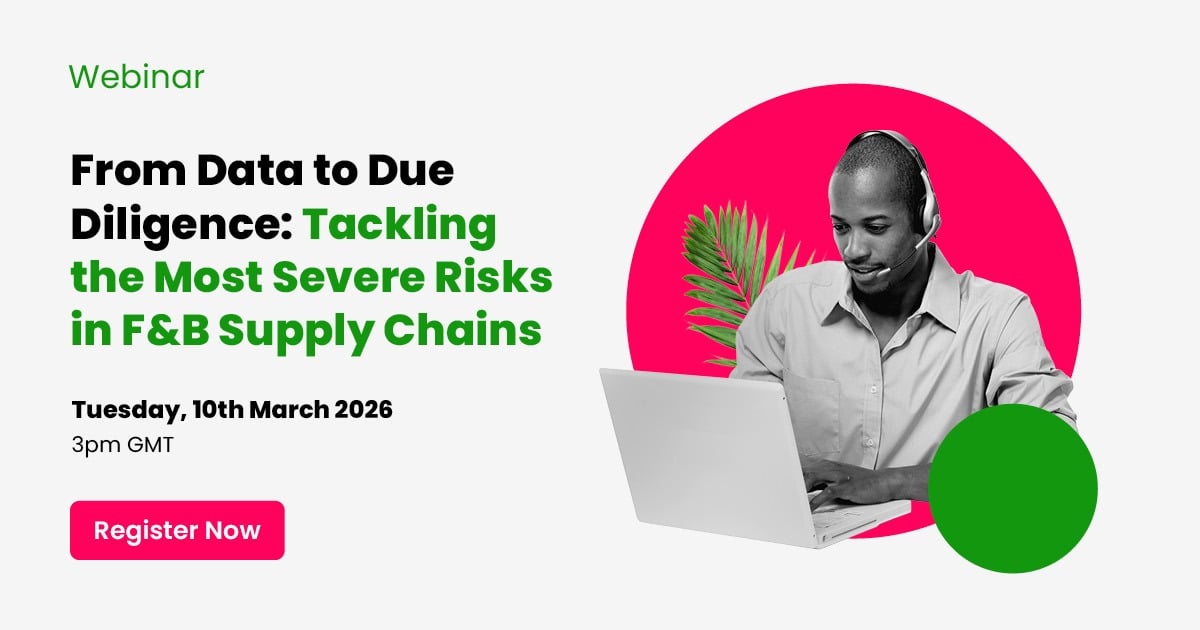What Businesses Need to Know About The Corporate Sustainability Due Diligence Directive (CSDDD)
The Corporate Sustainability Due Diligence Directive (CSDDD) represents a significant shift in how businesses must approach sustainability and risk management. If your company operates within the EU or has a substantial presence there, understanding this directive is crucial for future success. This legislation goes beyond voluntary sustainability efforts, creating legal obligations for companies to manage their social and environmental impacts.
This article will explain what the CSDDD is, who it applies to, and the key requirements your business should be aware of. We will also explore how you can begin preparing for compliance today.
What is the CSDDD?
The European Union’s CSDDD is a new law designed to encourage sustainable and responsible corporate behaviour. It establishes clear requirements for companies to address negative social and environmental impacts throughout their value chains.
Under this directive, companies that meet certain size and revenue thresholds are legally responsible for identifying both potential and actual ESG risks. They must also take steps to prevent or mitigate negative impacts, communicate their progress, and provide remedy if they have caused or contributed to any harm. It formalises due diligence, making it a mandatory part of corporate governance.
For an overview of digital tools that support supply chain transparency and risk management, see the Sedex platform.
Why was CSDDD introduced?
The EU introduced the CSDDD because voluntary corporate responsibility measures were not enough to prevent significant human rights abuses and environmental harm in global supply chains. The directive aims to create a level playing field and standardise expectations for businesses operating in the EU.
Key objectives of the CSDDD include:
- Improving corporate accountability by holding companies directly responsible for their human rights and environmental footprint
- Creating a level playing field so that all large companies operating in the EU adhere to the same high standards
- Increasing transparency, making supply chain due diligence processes more transparent and consistent across industries
- Aligning with global standards, such as the UN Guiding Principles on Business and Human Rights, and bringing them into EU law

Who does this EU directive apply to?
The scope of the CSDDD will be phased in, with full implementation expected by 2029. It will apply to the following groups:
- large EU-based companies with over 1,000 employees and annual global revenue of more than €450 million
- non-EU-based companies that generate annual revenue of more than €450 million within the EU market
It is important to note that even if your business does not fall directly within these thresholds, you could still be affected. Smaller companies that are part of the supply chains of in-scope businesses will face increased pressure to provide data and meet their customers’ compliance requirements.
How will CSDDD impact sustainability in business?
The CSDDD marks an important change in corporate sustainability. It requires businesses to integrate human rights and environmental considerations directly into their core operations and supply chain management.
Simply publishing a sustainability report is no longer enough. Companies must now conduct due diligence actively on their own operations, subsidiaries, and wider value chains. This involves assessing everything from labour rights and working conditions to pollution and climate change impacts. The directive mandates a proactive approach to risk management, encouraging organisations to move beyond compliance and embed responsible practices into their strategic decision-making.
Key requirements of CSDDD for businesses in scope
For companies in scope, the CSDDD sets out several core obligations. Organisations must put in place a comprehensive due diligence framework that includes:
- Integrating due diligence into policies: updating corporate policies to include a due diligence strategy
- Identifying adverse impacts: systematically identifying actual and potential human rights and environmental harms across the value chain
- Preventing and mitigating impacts: taking appropriate measures to prevent or reduce identified risks, which includes developing action plans and seeking contractual assurances from partners
- Establishing a complaints procedure: creating a formal process so stakeholders can raise concerns about adverse impacts
Monitoring and reporting: regularly monitoring the effectiveness of due diligence measures and publicly reporting on their activities

How can businesses prepare for CSDDD?
Although EU member states have time to translate the directive into national law, the requirements are substantial. Proactive preparation is essential for a smooth transition to compliance. Here are some strategic steps your company can take now:
1. Integrate sustainability into business decisions
Start connecting key sustainability issues to your company’s value creation and risk management processes. Incorporate sustainability metrics into strategic planning and prioritise initiatives that deliver both financial and ESG benefits.
2. Make data-driven decisions
A cohesive ESG data model is crucial for prioritising activities, allocating resources, and demonstrating progress. By consolidating your ESG data and improving data literacy across teams, you can empower employees to make more informed and sustainable decisions.
3. Leverage innovation and collaboration
Tackling complex sustainability challenges often requires collaboration. Identify areas where partnerships within your industry can create shared value. Building effective partnerships can help your business address sustainability issues more efficiently.
4. Assess and map your supply chain
Start by gaining visibility into your supply chain. Map your business relationships to understand your different tiers of suppliers and identify areas at highest risk for human rights or environmental issues. This initial assessment is a vital step for all due diligence activities.
5. Understand audit methodologies for compliance
Reviewing available audit options, such as the SMETA audit, can help ensure your business is using robust processes to assess and evidence compliance with regulatory requirements.

How Sedex can help
Sedex supports businesses of all sizes to strengthen their supply chain sustainability practices and prepare for the CSDDD. Through a comprehensive suite of tools and services, Sedex enables organisations to:
- Assess and monitor risks: use our platform to identify, analyse, and track human rights and environmental risks across your supply chain
- Collaborate with suppliers: build stronger relationships and support improvements by sharing information, best practice, and expectations using our supplier engagement tools
- Simplify reporting: streamline your sustainability and compliance reporting with robust data management and automated reporting features, helping you meet the requirements of CSDDD and other regulations
- Improve transparency: gain greater visibility into your supply chain and demonstrate responsible business practices with clear, actionable insights
- Stay ahead of changes: access expert guidance and resources to navigate evolving legislation and sustainability standards
To learn more about how Sedex can support your organisation on the path to CSDDD compliance, contact our team or explore our range of solutions.
Be sure to check out our latest blog on the EU Omnibus proposal for a detailed summary.
Ready to see how Sedex can support your CSDDD journey? Contact us today.


